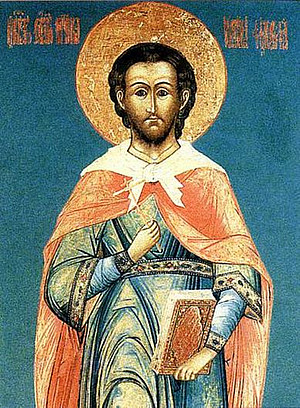Justin the Martyr
His life is shrouded in mystery, with the names of his ancestors seeming to indicate a Roman and/or Greek background, while he claims to be a Samaritan. Some linguistic features of his writings point in this direction. However, he also claims he was an uncircumcised Gentile and thus could not have belonged to the community that worshiped on Gerizim, contra Epiphanius. Justin wrote during the reign of Antoninus Pius and Marcus Aurelius. He appears to have been the teacher of a school in Rome.
Eusebius attributed eight works to Justin, oddly omitting the Syntagma Against All Heresies. Some of this work may have been part of others. Only his two apologies and his dialogue survive, and these in one 14th century manuscript. Apology, perhaps motivated by martyrdom of Polycarp (ca. 156), was composed in 156–7. In it, J. recounted his education and his conversion. J. wanted emperors to require a trial of Christians and not be punished on the mere basis of having the name ‘Christian.’ His larger interest was to show that the imperial philosophers and rulers held a common culture with Christians and the highest elements of this, especially Plato’s doctrine of logos, are embodied in Jesus. Justin’s rhetoric effects a marriage between two divergent religious and cultural traditions. He also wanted to show that Christianity is an ancient religion and he grounded this claim on its continuity with the teachings of the OT (relevance of typology). J.’s Dialogue with Trypho the Jew developed the Christian understanding of the Law and the Prophets and rendered Christian exegesis of the OT credible
He had middle Platonist leanings, but characterizing him as an academic or eclectic philosopher would be overwrought. The controlling centers of Justin’s thought were the church’s teachings about creation, incarnation, atonement, resurrection, church, sacraments, and moral life. He was renowned in his own day and by those following after him, primarily for being a heresiologist because of his Syntagma, to which Irenaeus referred. He also had significance for the history of liturgy and as a martyr. Justin has received a good deal of attention in twentieth century scholarship because of his integration of pagan wisdom with Christianity.
